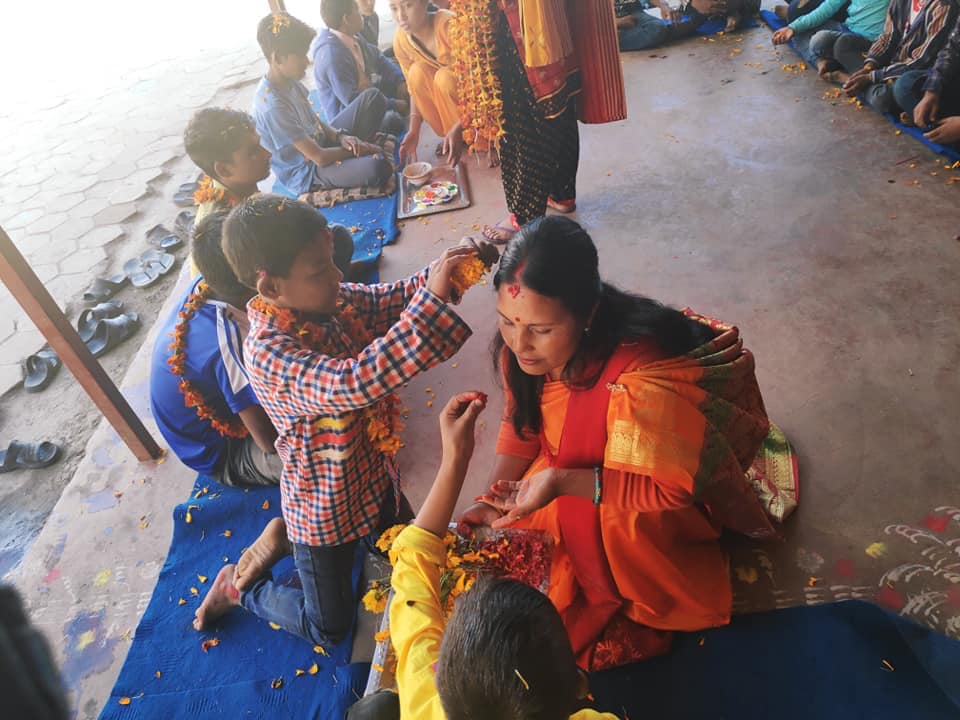CLIMATE CHANGE AND DISEASES: AWARENESS-RAISING WORKSHOPS
Nepal is one of many countries which are affected by climate change. Previously the high-altitude Himalayan country never had to worry about mosquitoes, unlike other Asian countries. However, due to climate change, Nepal became hospitable to disease-carrying mosquitoes.
Most recently, there has been an unprecedented outbreak of dengue, a disease transmitted by mosquitoes. Since August 2019, more than 9.000 people across Nepal have been diagnosed with dengue.
CPCS Alliance hosts several awareness-raising workshops to inform about the disease and how people can protect themselves.

HEALTH AWARENESS CLASSES
According to a study carried out in the Kathmandu Valley among 745 children aged between 12 and 23 months, Nepalese children under the age of 2 are getting a quarter of their calories from junk food. These children are more likely to have inadequate levels of nutrients vital for growth and development such as protein, calcium, and vitamin A. Contrariwise, it increases their chances of getting heart diseases due to trans-fat and polyunsaturated fat. Thus, this has added a double burden of disease: while malnutrition and infectious diseases remain a great challenge, noncommunicable diseases are becoming more prevalent in Nepal.
To reverse the trend, CPCS organizes health awareness classes especially addressing the dangers of junk food and the necessity of having a healthy diet and lifestyle.

EARTHQUAKES AND SCHOOLS SAFETY PROTOCOLS
Due to its geographic location and alpine landscape, Nepal has five climatic zones, reaching from the tropical to the arctic zone within the Himalaya mountains. The geographical location not only enables a rich biodiversity but also introduces several dangers. As Nepal is located within two major tectonic plates, the country is highly prone to earthquakes. The recurring earthquakes have devastating consequences and present a significant hurdle to the economic development of Nepal.
CPCS hosts regular trainings in schools on safety protocols during earthquakes and provides important first aid training.

HEALTH CHECK-UPS
This week, the CPCS hosted again one of their many regular health check-ups in Nepalese schools.
The significance of these regular check-ups is to build awareness of general health and hygiene issues among pupils. Besides health check-ups and medical treatments, basic medical courses on first aid, wound treatment and bandages have been provided.
VISITING HKPA
Official Visit (International Network of Street Workers) to a very nice and so well organized organization, Hong Kong PlayGround Association (HKPA). A very impressive work done here and since 1933 !!! Thanks, Lapman Wan for your welcoming and kindness! Further partnerships to be created soon, and maybe a common research to understand better children and youth in street situations in Asia (and maybe elsewhere !)



DASHAIN FEST
On 8 October, Nepalese people were celebrating the Dashain Festival. In Nepal, the Dashain is the most notable festival, lasting for 15 days. During the festival, people celebrate the victory of the good over the evil. Relatives often put a tika – a mixture of red Vermilion, yogurt, and rice – on the forehead of their children to bless them.

BHAI TIKA
On October 30, Nepalese people were celebrating Bhai Tika, the last and most important day of the Tihar festival. It is the festival of lights, and diyas (oil lamps usually made of clay) are lit everywhere in Nepal during the night. Moreover, during Bhai Tika, brotherhood is being celebrated. Siblings put a tika on their brother’s foreheads to bless them with a long life and to thank them for the protection they provide.

